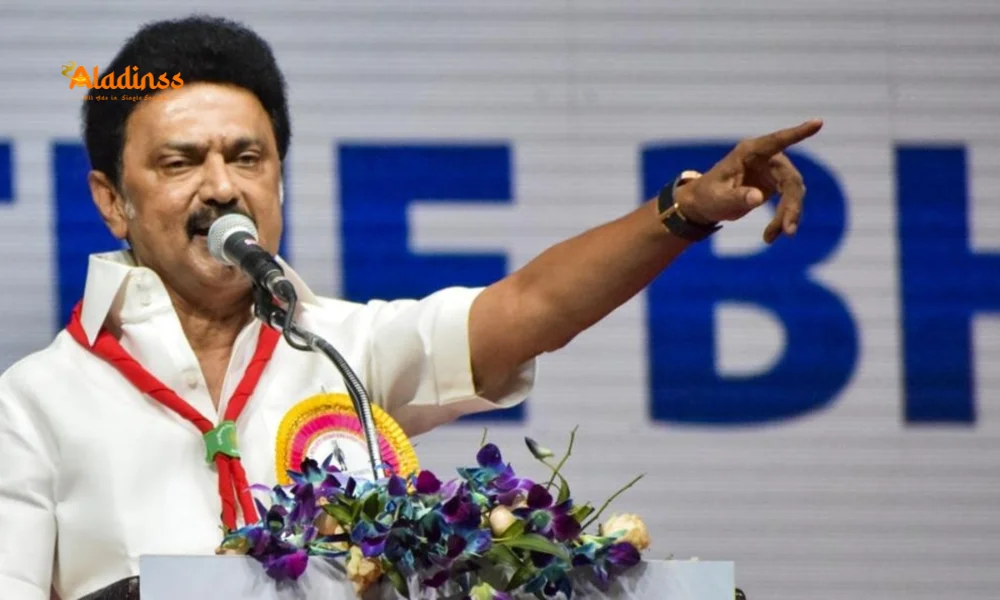India’s Betting Apps Ban: Rise and Fall of RMG Industry

From Boom to Ban: The Rise and Fall of India’s Real-Money Gaming Industry
The rapid ascent of India's Real-Money Gaming (RMG) industry, once a beacon of innovation and economic promise, has come to a screeching halt with the passage of the Promotion and Regulation of Online Gaming Bill, 2025. This legislation, enacted on August 21, 2025, imposes a blanket ban on all online games involving monetary transactions, effectively dismantling a sector valued at $3.8 billion and employing over 200,000 people. The ban, aimed at curbing addiction and financial distress, has sparked intense debate, with critics arguing it threatens to push users toward unregulated platforms while decimating a thriving industry. This article delves into the rise of India’s RMG sector, the personal toll of gambling addiction, the implications of the new law, and the uncertain future for millions of players and businesses.
The story of Kartik Srinivas (name changed), a 26-year-old who lost over 1.5 million rupees ($17,000) to online betting between 2019 and 2024, encapsulates the darker side of this industry. Srinivas’s descent into addiction, fueled by the allure of quick profits on apps, local bookies, and international platforms, reflects the experiences of millions. The new law, while intended to protect individuals like him, has raised concerns about its sweeping approach and lack of nuance, particularly in distinguishing between games of skill and chance. As companies like Dream11 and My11Circle shut down their real-money operations, the industry faces an existential crisis, with ripple effects on jobs, investments, and India’s digital economy.
The Rise of India’s Real-Money Gaming Industry
India’s RMG industry emerged as a powerhouse over the past decade, driven by the widespread adoption of smartphones, affordable internet, and a passion for sports like cricket. Platforms like Dream11, My11Circle, and Mobile Premier League (MPL) capitalized on this trend, offering fantasy sports, poker, and rummy games where users could wager real money for cash rewards. By 2024, the sector boasted around 400 startups, generating $2.3 billion in annual tax revenue and attracting over $2 billion in foreign direct investment between 2021 and 2022. Dream11, valued at $8 billion, even secured sponsorship of India’s national cricket team, while My11Circle partnered with the Indian Premier League (IPL), the world’s richest cricket tournament.
The industry’s growth was further fueled by celebrity endorsements and court rulings that classified fantasy sports and certain card games as "games of skill," distinguishing them from gambling. High courts in Karnataka, Tamil Nadu, and Punjab and Haryana upheld this distinction, striking down state-level bans and providing legal clarity for companies. These rulings encouraged investors, including global giants like Tiger Global and Peak XV, to pour millions into RMG startups, positioning India as a global leader in online gaming. However, the sector’s rapid expansion also brought scrutiny, with concerns about addiction, financial losses, and regulatory gaps prompting government action.
The Human Cost of Online Betting
Kartik Srinivas’s story highlights the devastating impact of online betting addiction. What began as a casual attempt to earn quick money spiraled into a five-year ordeal that drained his savings, strained relationships, and led to loans from friends and family. "I tried everything—apps, local bookies, international platforms. I was hooked," Srinivas admitted. His losses, totaling over 1.5 million rupees, included three years of earnings, leaving him in financial ruin by 2024. Srinivas’s experience is not isolated; government sources claim that 450 million Indians have been affected by online money games, with collective losses exceeding 200 billion rupees ($2.4 billion).
Federal IT Minister Ashwini Vaishnaw, speaking in Parliament on August 20, 2025, cited cases of depression and suicides linked to online gaming addiction, though the data’s source remains unclear. Reports from Tamil Nadu indicate 47 suicides related to gaming addiction between 2019 and 2024, underscoring the public health crisis. Critics like Vishal Gondal, co-founder of nCore Games, argue that many RMG platforms use "opaque algorithms" and bots designed to favor the house, making it nearly impossible for users to win consistently. "These games essentially amount to gambling," Gondal told the BBC, comparing them to alcohol masquerading as fermented juice.
Also Read: Madras High Court Rejects U/A for Coolie
The 2025 Ban: A Sweeping Crackdown
The Promotion and Regulation of Online Gaming Bill, 2025, passed by both houses of Parliament on August 21, 2025, and awaiting presidential assent, marks India’s first federal law to ban real-money gaming platforms. The legislation prohibits offering, operating, or promoting online money games, with penalties including up to three years in prison and fines of 10 million rupees ($115,000) for operators, and two years with 5 million rupees ($57,000) for promoters. Banks and financial institutions are barred from processing RMG transactions, and advertisements for such games are outlawed. Notably, the law treats users as victims rather than offenders, focusing punitive measures on companies and endorsers.
The government justifies the ban as a response to addiction, financial ruin, and security concerns, including allegations of money laundering and terror financing linked to offshore platforms. However, the law’s failure to distinguish between games of skill (like fantasy sports and poker) and games of chance (like lotteries) has drawn sharp criticism. Industry leaders argue that this blanket approach contradicts judicial precedents, such as the 2022 Supreme Court ruling upholding fantasy sports as skill-based. Mumbai-based gaming lawyer Jay Sayta called the ban a "massive setback" for investors, noting its hasty introduction without industry consultation.
Industry Fallout and Economic Impact
The ban has sent shockwaves through the RMG industry, forcing major players like Dream11, My11Circle, MPL, and PokerBaazi to suspend real-money operations. Dream11, once a flagship sponsor of India’s cricket team, announced the discontinuation of its pay-to-play contests, while MPL and Zupee have shifted focus to free-to-play games like Ludo and Snakes & Ladders. The economic toll is significant, with the sector contributing 20,000 crore rupees ($2.3 billion) in taxes annually and supporting 200,000 direct and indirect jobs. Industry estimates suggest that 86% of the sector’s revenue came from real-money formats, making the ban a near-fatal blow.
The All India Gaming Federation (AIGF) has warned that the ban could lead to widespread job losses and company closures, with startups like Games24x7 and Winzo facing an uncertain future. The industry’s appeal to Home Minister Amit Shah for a regulatory framework instead of a prohibition highlights concerns about economic disruption. Smrita Singh Chandra, formerly with Dream11, criticized the ban’s lack of transition or nuance, arguing that it disregards the sector’s contributions to India’s digital economy, projected to reach $1 trillion by 2030. The ban also threatens domestic sports, as fantasy gaming sponsorships sustain many state and city-level leagues.

The Risk of Underground Gambling
Industry stakeholders and gaming federations argue that the ban could backfire by driving users to unregulated platforms and offshore gambling sites. In many Indian cities, betting already occurs through local bookies operating via WhatsApp and Telegram groups, often with no oversight or consumer protections. Overseas apps, accessible through VPNs, pose additional risks, including data theft and financial fraud. The AIGF has cautioned that the ban could push millions of players toward these "fly-by-night operators," undermining the government’s goal of protecting consumers.
Srinivas, reflecting on his addiction, expressed skepticism about the ban’s effectiveness. "At least with these apps, there was some accountability," he said, noting that regulated platforms offered transparency and withdrawal options. Without them, he fears users will turn to shadier alternatives, exacerbating the risks of exploitation. Experts like Sayta echo this concern, arguing that prohibition has historically driven industries underground in India, as seen with liquor bans. The lack of regulation could also result in lost tax revenue, with illegal operators evading the 28% GST imposed on gaming since October 2023.
Debate Over Skill vs. Chance
A central point of contention is the law’s failure to differentiate between games of skill and chance. Indian courts have consistently ruled that games like fantasy sports and rummy rely on skill, involving strategy and knowledge, unlike luck-based lotteries. These rulings provided a legal foundation for RMG companies to operate, but the 2025 bill disregards this distinction, categorizing all money games as harmful. This approach has sparked accusations of overreach, with industry leaders arguing that skill-based games should be regulated rather than banned.
The government’s stance, supported by figures like Gondal, emphasizes the manipulative nature of gaming algorithms. In games like online rummy, users often compete against bots programmed to ensure platform profits, blurring the line between skill and chance. However, industry advocates argue that regulated platforms implement safeguards like KYC norms and transparent algorithms, which illegal operators lack. The ban’s broad scope could face legal challenges, with companies like Dream11 exploring Supreme Court petitions to protect their skill-based offerings.
The Path Forward
The ban has reignited calls for a balanced regulatory framework that addresses addiction and fraud while preserving the RMG industry’s economic benefits. Industry bodies like the E-Gaming Federation and Federation of Indian Fantasy Sports have urged dialogue with the government, proposing measures like age verification, spending limits, and anti-money laundering protocols. Such regulations could protect vulnerable users like Srinivas while allowing legitimate businesses to thrive. The government’s focus on promoting esports and social gaming, as outlined in the 2025 bill, suggests a vision for a safer gaming ecosystem, but its execution remains uncertain.
For now, the RMG industry faces a precarious future, with major players pivoting to non-money games or shutting down entirely. The ban’s impact extends beyond economics, affecting millions of players who enjoyed skill-based gaming as a pastime. As India navigates this complex issue, the debate over regulation versus prohibition will shape the future of its digital economy and the lives of individuals like Srinivas, who hope for greater awareness and support to prevent others from falling into the trap of addiction.
Comment / Reply From
No comments yet. Be the first to comment!











